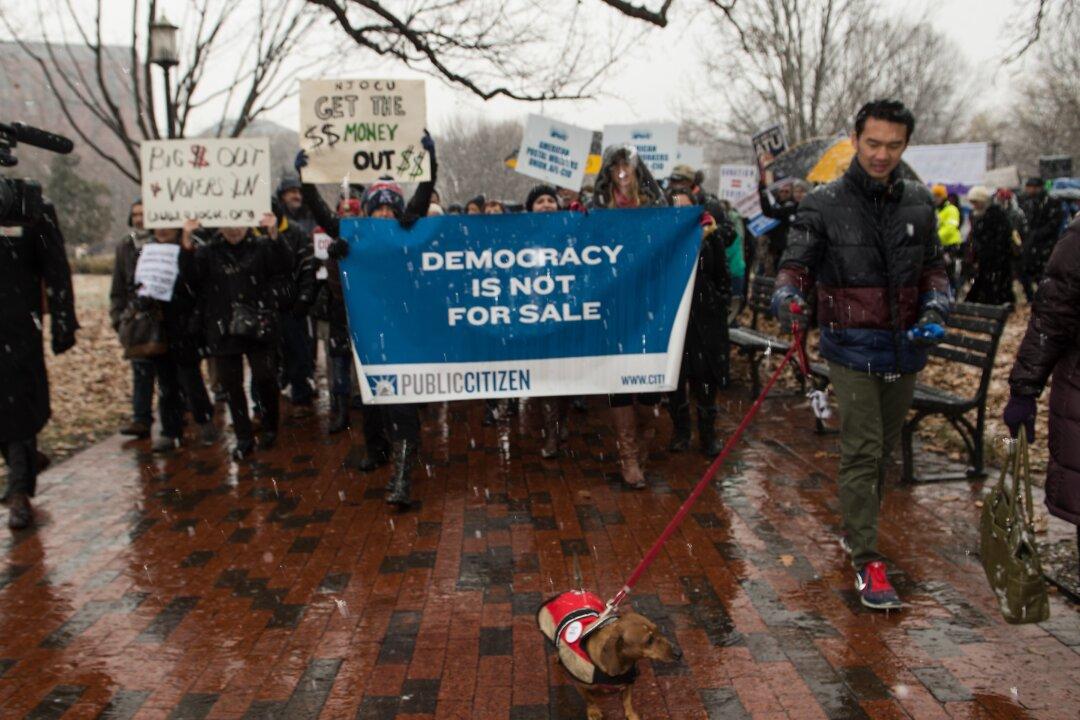Public corruption prosecutions have declined since the Supreme Court’s Citizens United decision, according to a new study by the Institute for Free Speech. Campaign finance reformers had predicted that decision would unleash a flood of special-interest influence-peddling in government.
The 5–4 Citizens United v. Federal Election Commission decision on Jan. 21, 2010, held that corporations, including nonprofit corporations, and labor unions can’t be barred from spending money on independent political advocacy.





